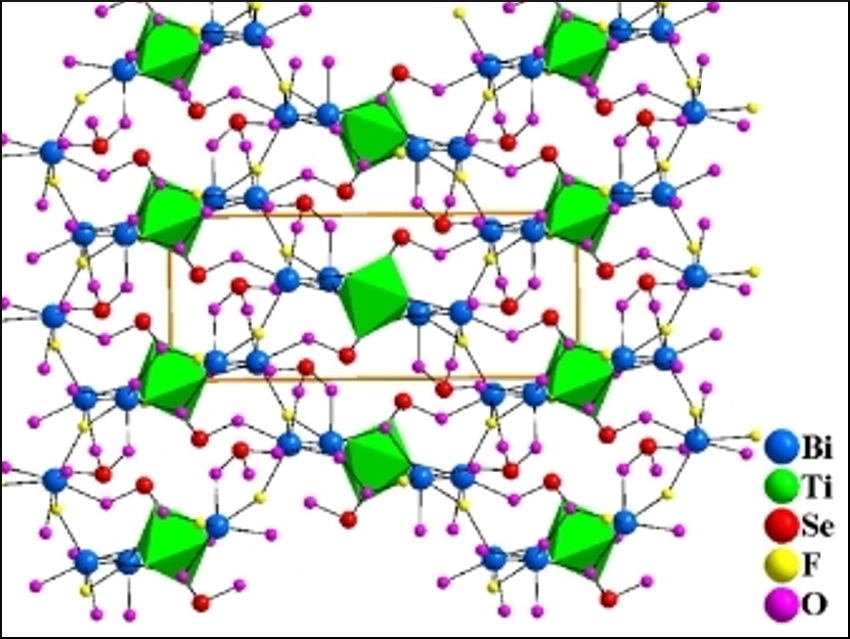Birefringent crystals can modulate the polarization of light and are widely used in optical devices. Although crystals with non-cubic structures are often birefringent, large birefringent crystals (Δn > 0.1) both natural and artificial are still rare, especially for the UV or deep-UV spectral bands.
Jiang-Gao Mao, Fujian Institute of Research on the Structure of Matter, Fuzhou, China, Fang Kong, Fujian Institute of Research on the Structure of Matter and Fuzhou University, China, and colleagues have searched for birefringent crystals among bismuth d0-transition-metal selenites. Aliovalent substitution, i.e., replacing ions with those of a different valence, was used to create new compounds. Fluoride anions were introduced to keep the charge balance. Five new crystals were synthesized by hydrothermal reactions of the related oxides and fluorides, namely, Bi4TiO2F4(SeO3)4, Bi4NbO3F3(SeO3)4, Bi4TeO4F2(TeO3)2(SeO3)2, Bi2F2(MoO4)(SeO3), and Bi2ZrO2F2(SeO3)2.
Density functional theory (DFT) calculations were performed to evaluate the compounds’ birefringence. Three isostructural crystals, i.e., Bi4TiO2F4(SeO3)4 (structure pictured), Bi4NbO3F3(SeO3)4, and Bi4TeO4F2(TeO3)2(SeO3)2, displayed very large birefringence at 1064 nm. This work could provide the basis for the design and synthesis of new crystals with high birefringence.
- Exploration of New Birefringent Crystals in Bismuth d0 Transition Metal Selenites,
Ya-Ping Gong, Chun-Li Hu, Fang Kong, Jiang-Gao Mao,
Chem. Eur. J. 2019.
https://doi.org/10.1002/chem.201806328




